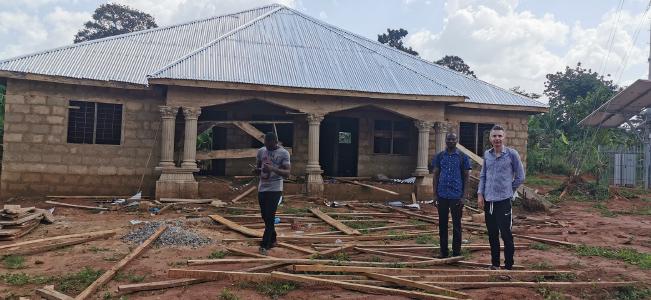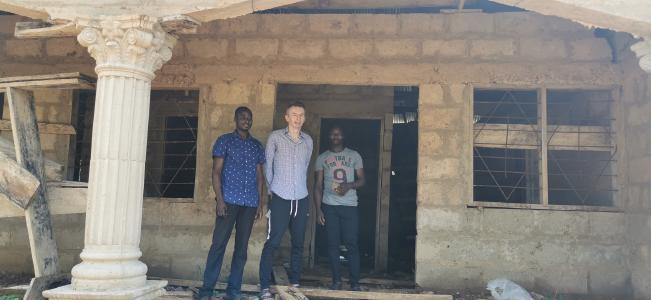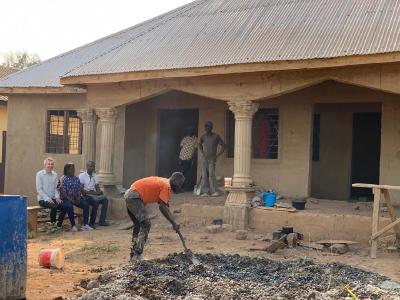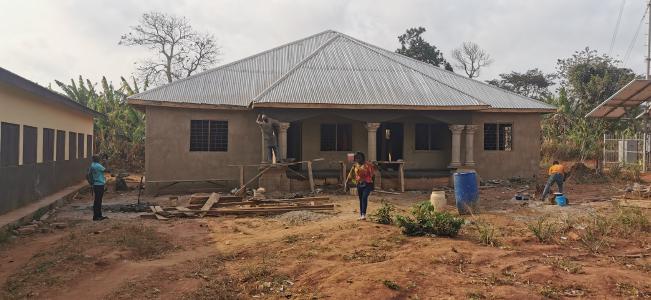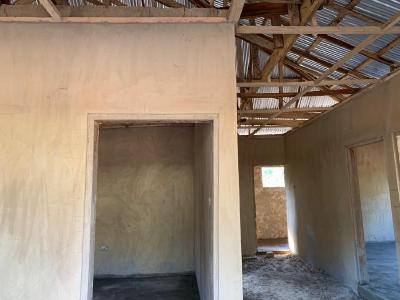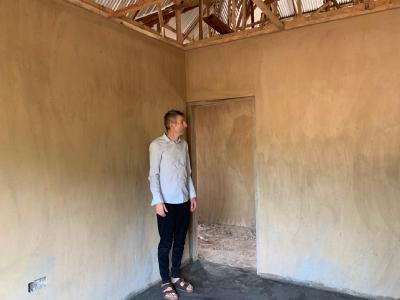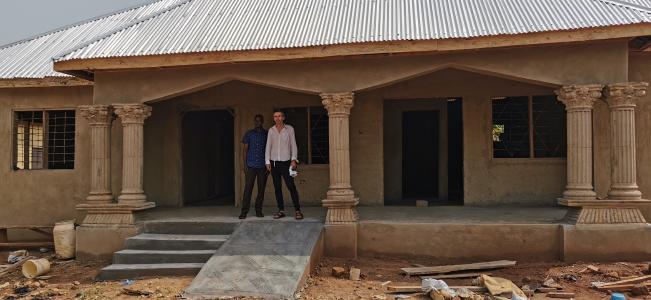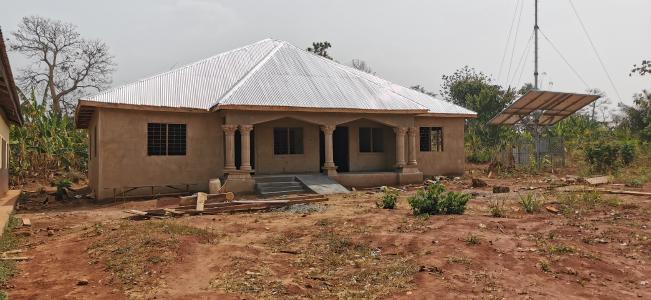Teacher accommodation in Anyankamamu
Rationale and planning
Anyankamamu school is difficult to access and as a result, teachers are disadvantaged by teaching there. One teacher expressed it like this: “We can’t afford the 300 cedis (£20) each month for our travel to Kofiase, and waste an hour each way”. As a junior teacher’s salary is about 1000 cedis (£65) per month, this is very understandable.
The teacher accommodation will be situated within the school grounds, and will have five rooms. The nine teachers are happy to share rooms (two teachers in each room). Building the teacher accommodation will improve the prospects of the school children, by giving them more access to teachers in the afternoons and evenings, and ensuring that the school can successfully recruit and retain good teachers. Turbo Ghana has previously built teachers accommodation twice; once in Aframano in 2020, and once in Kontonho in 2024. In Aframano, the accommodation is very popular and appreciated by teachers.
Anyankamamu Primary school was established in 1992, and has eight class rooms. The head teacher Mr Frimpong gave us these numbers:
| Class | Boys | Girls |
|---|---|---|
| Kindergarten 1 | 30 | 22 |
| Kindergarten 2 | 10 | 16 |
| Primary 1 | 13 | 8 |
| Primary 2 | 8 | 15 |
| Primary 3 | 11 | 14 |
| Primary 4 | 12 | 17 |
| Primary 5 | 10 | 12 |
| Primary 6 | 12 | 9 |
| ——— | ——— | ——— |
| Total | 106 | 113 |
Kwasi has prepared a budget. We have told the teachers and community members that this is on our list of projects, and they are very happy. They have already sent us a thank you letter, in which they promise to contribute community labour, including fetching water (which will be quite some task) and filling the foundation trenches.
Here is the location of the school. You can just about see it if you click to show the satellite view. It’s about half way between Aframano and Kofiase.
Update (November 2024)
The building is almost complete! What remains is the plastering and painting.
Update (February 2025)
These pillars (which are quite common in Ghana) give it a presence and a feeling of quality, which is nice for the school. The plastering was being finished when we visited. The whole building should be completed within about 4-6 weeks.
Our block consists of five rooms. There are nine teachers in the school, and all of them appear to want to sleep in the teacher accommodation, so they will have to share rooms. We talked to PY who wants to live there with her child, who will enroll at the school (they currently live in Kofiase). We talked to GA and CB who also want to live in the teacher accommodation. Living there will be challenging at first, as there is no electricity, and no water. The Government has built an electric borehole, but as there isn’t any electricity in the area it can’t be used (this is just down to terrible planning).
We are helping the school source a generator to provide electricity to pump the water in the short term. In the longer term, the headteacher is asking the district assembly for permission to convert the borehole to a manual one (and convert it back again if/when electricity ever arrives) – this is preferable because there’s no budget for paying for diesel. Turbo Ghana will pay those costs if the permission is obtained (probably £100). Kwasi had the good idea that the school should sell water to local farmers for irrigation, allowing the school to collect a fund for paying for diesel. At some future time, we may put solar panels on the school roof to allow teachers to charge phones and have night-time lighting. Anyankamamu is unlikely to get electricity any time soon, because the size of the school and nearby community is too small to make it an urgent priority.

